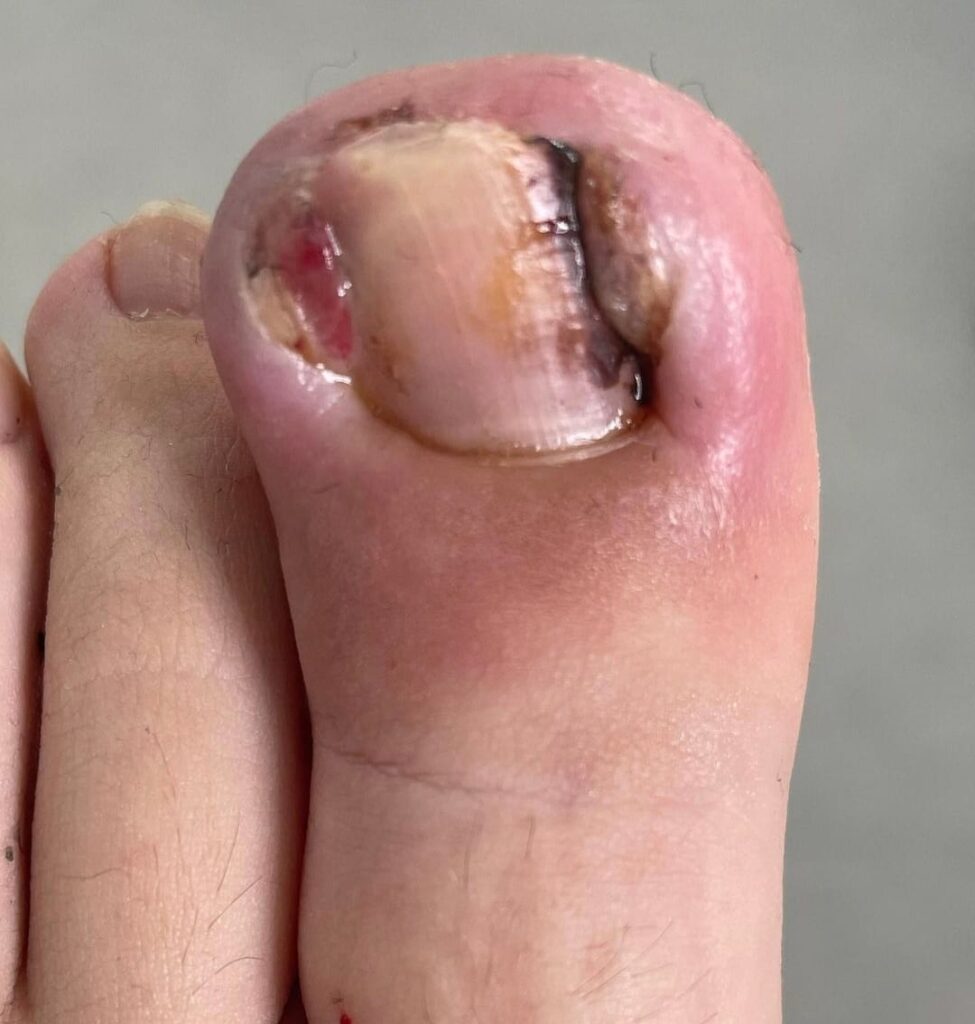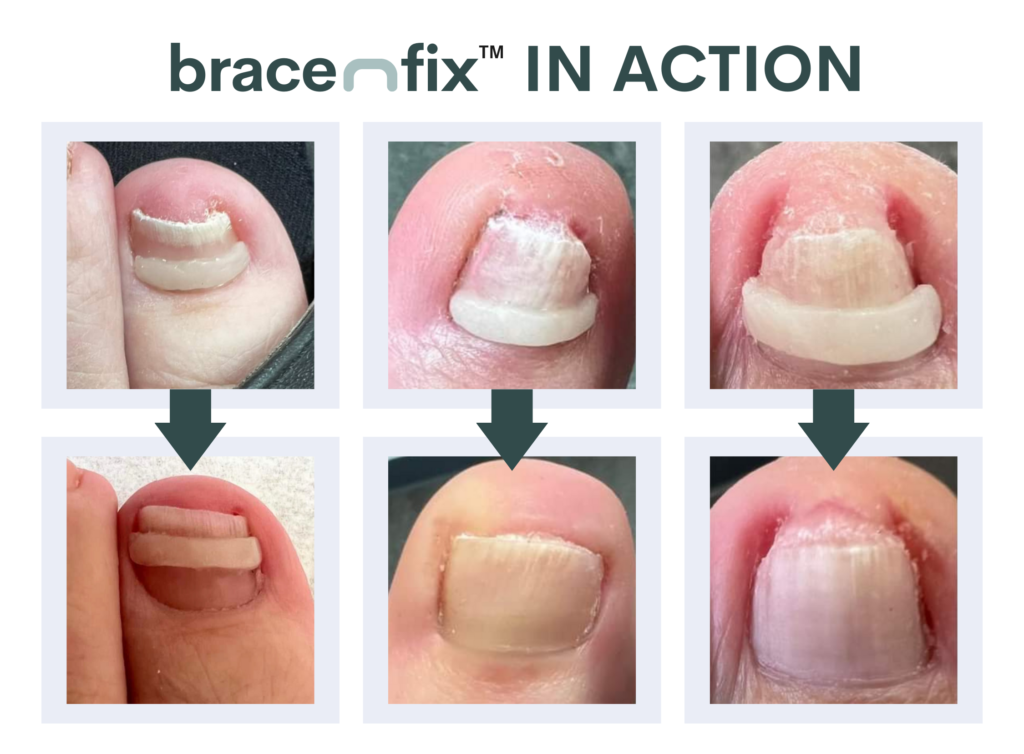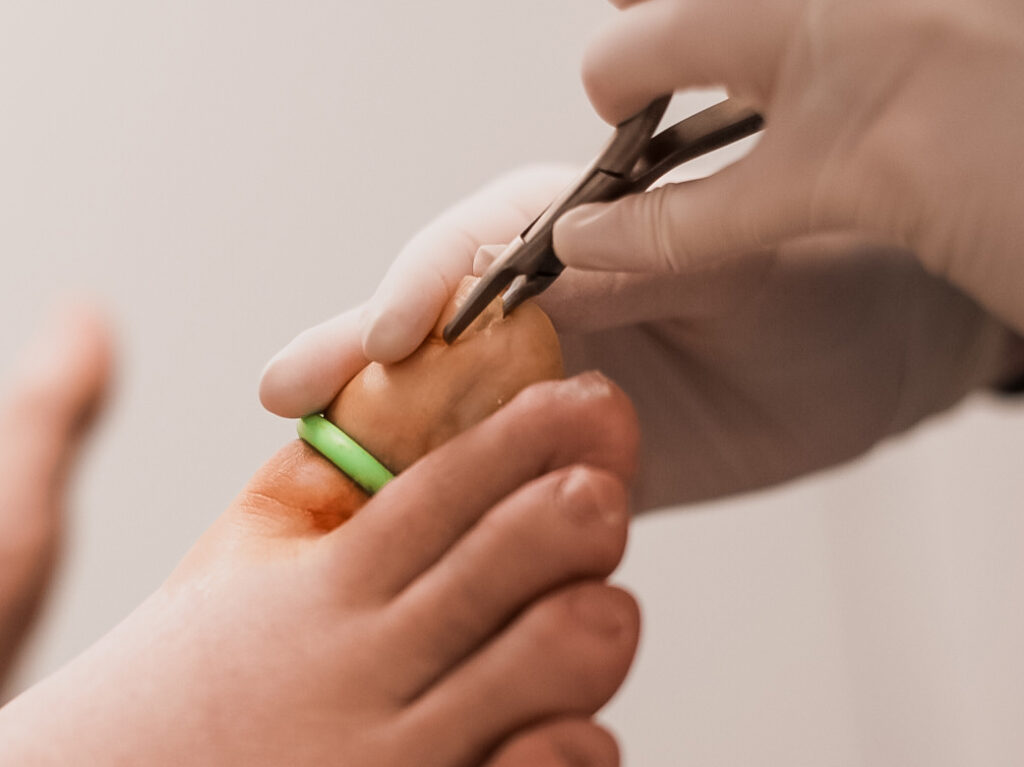What Are Ingrown Toenails?
Ingrown toenails, or onychocryptosis, occur when the edges or corners of a toenail grow into the surrounding skin, causing pain, swelling, and sometimes infection. This common condition typically affects the big toe but can occur on any toenail.

What Causes Ingrown Toenails?
Several factors can contribute to the development of ingrown toenails:
- Improper Nail Trimming: Cutting toenails too short or rounding the edges can encourage the nail to grow into the skin.
- Footwear: Tight, narrow, or ill-fitting shoes can compress the toes and push the nails into the surrounding skin.
- Trauma: Stubbing your toe or other injuries can lead to ingrown nails.
- Genetics: Some individuals have naturally curved nails that are more prone to becoming ingrown.
- Poor Foot Hygiene: Keeping feet clean and dry can help prevent ingrown nails.
- Repetitive Activities: Activities that put pressure on the toes, such as running or soccer, can increase the risk of ingrown toenails.
Symptoms of Ingrown Toenails
- Pain and tenderness along the side of the nail
- Redness and swelling around the nail
- Infection signs such as pus or increased warmth
Treatment Options
Preventative Care
- Proper Nail Trimming
- Cut toenails straight across rather than rounding the corners.
- Avoid cutting nails too short to prevent them from growing into the skin.
- Footwear Advice
- Wear shoes that fit well and have plenty of room for the toes-wide and deep toe box .
- Avoid high heels and narrow shoes that can squeeze the toes.
- Tape the skin along the nail edge away from the nail.
When Preventative care fails- Podiatrist Treatment Options
Regular Podiatry
Regular visits to a podiatrist can help manage and prevent ingrown toenails. Podiatrists can:
- Trim and shape the nails correctly.
- Remove any small spicules of nail that might be digging into the skin.
- Provide advice on proper nail care and footwear.
Bracenfix System
Our expert podiatrists also use the The Bracenfix brace system, which is a non-invasive treatment that involves attaching a small, resin brace to the surface of the nail. This system helps to gently lift and straighten the nail, reducing pressure on the surrounding skin. As with teeth braces , it takes time to reshape.
- How It Works: The brace applies continuous tension to the nail, encouraging it to grow in a more natural, straight direction as the nail grows.
- Benefits: Non-surgical, painless, and effective for mild to moderate cases of ingrown toenails where they’re in no wound. Does not affect activities, and can get wet.

Partial Nail Avulsion (PNA)
For severe or recurrent ingrown toenails, a surgical procedure known as partial nail avulsion (PNA) may be necessary.
- Procedure: Under sterile conditions, the podiatrist removes a portion of the nail along the affected edge. The procedure is done under local anaesthesia and with a small toe tournicot.
- Phenolisation: The base of the nail is treated with phenol after the nail edge removal, to prevent regrowth of the ingrown portion. This ensures its permanent relief, also then there is minimal pain afterwards and minimal or no bleeding.
- Recovery: Patients may experience mild discomfort after the procedure, but this can be managed with over-the-counter pain relievers. Proper wound care is essential to ensure healing and prevent infection. Several review appointments are undertaken to ensure the healing proceeds well.

Conclusion
Ingrown toenails can be painful and troublesome, but with proper care and treatment, they can be effectively managed. Cheltenham Podiatry are foot and ankle experts, and can provide all the options discussed. Consulting with a podiatrist ensures that you receive the best care tailored to your specific needs, allowing you to maintain healthy, pain-free feet. The quicker the toe nail is attended to often the easier it can be to resolve. Ring or book online now .
Latest News
Ankle Arthritis
Understanding Ankle Arthritis and Regenerative Treatment Options in Podiatry Ankle[…]




